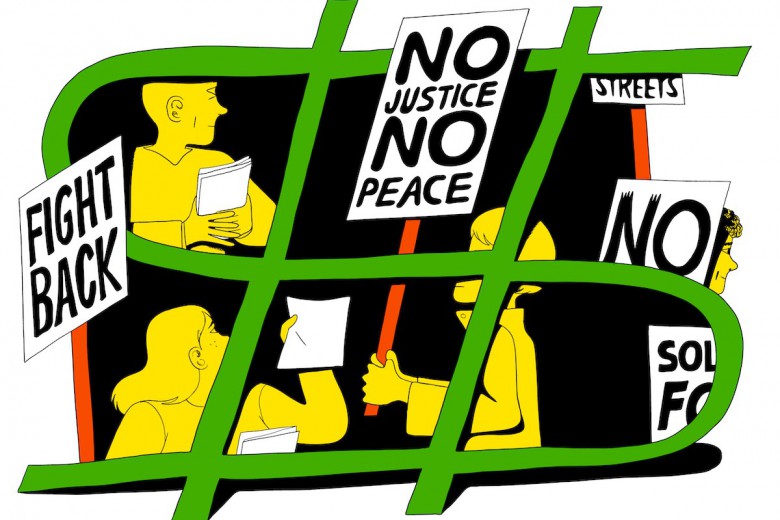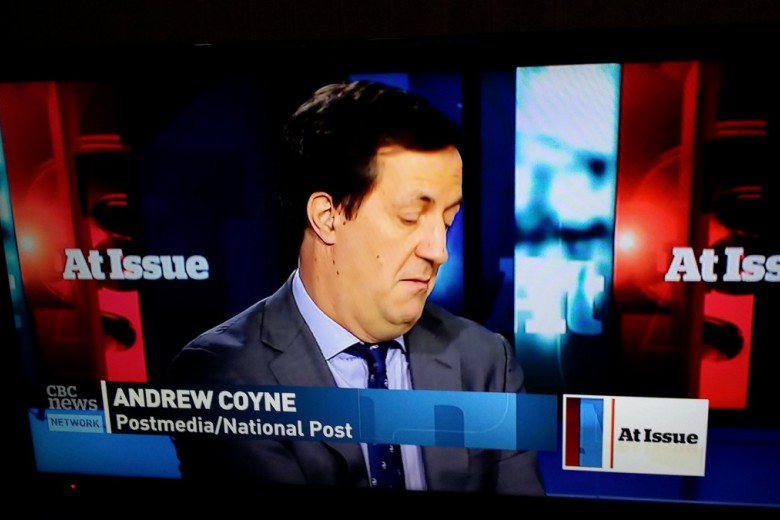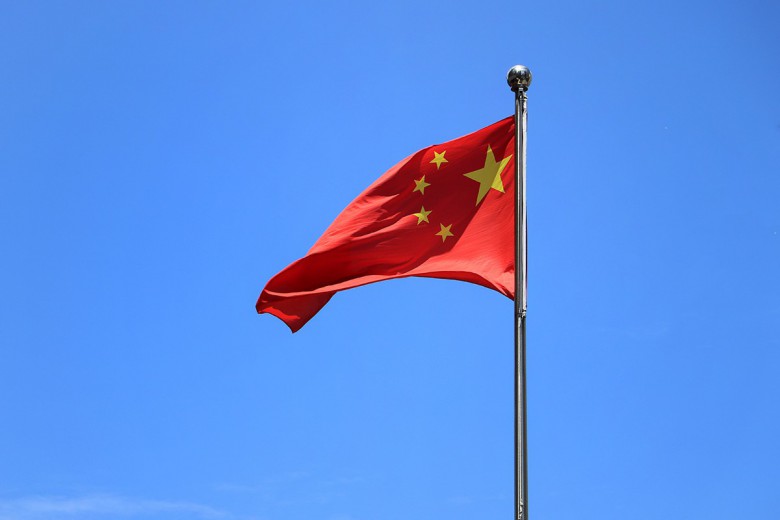
For the last 10 years, Juana López Nuñez (not her real name) has spent most of her waking hours making T-shirts for the Canadian company Gildan Activewear at the company’s San Miguel factory in Honduras.
Today, at age 44, she has little use of her arms and experiences constant pain in her shoulders, neck and hands. She takes painkillers throughout the day, and has had one surgery, which didn’t ease the chronic tendonitis that keeps her up at night.
“I thought that when I started to work for a company, it would make life better. I didn’t realize that I was going to get injured” she says, holding back tears. López is a single mother of five children, including a 10-year-old daughter who helps her with housework. She makes the equivalent of $47.50 a week.
López isn’t the only Gildan employee who is facing troubles at the workplace. “The others don’t want to talk. They are scared and they don’t say anything” said López. “They are scared to talk to the management because they think they will get fired or get a lower grade of pay” she said.
Maquila (sweatshop) workers are one segment of the Honduran population whose already difficult lives have gotten more so since the military coup last year.
Early on the morning of June 28, 2009, President Manuel José Zelaya Rosales was removed from the presidential residence by the army and flown out of the country to Costa Rica. Right-wing Liberal politician Roberto Micheletti Baín was quickly sworn in as interim president, a position he held through the November 29 elections until the inauguration of Conservative politician and landowner Porfirio “Pepe” Lobo Sosa in January.
Grassroots resistance to the coup was strong and widespread, and the repression was harsh. Between June and December of 2009, the Committee for Relatives of the Disappeared in Honduras (COFADEH) documented 708 human rights violations, including 54 murders. The coup regime also shut down opposition media, and journalists have been threatened and some murdered.
To place the blame solely on multinational corporations or imperial foreign governments, however, is too simplistic. The coup in Honduras can be understood as a setback in the popular struggle against globalized capitalism. And while Canada has certainly played a role in legitimizing the coup, the actions of local elites empowered by transnational capital have often been glossed over by coup critics outside the country.
Foreign investment and the coup
Six months after the coup, workers in the maquilas were facing much more difficult conditions than they previously were, said Maria Luisa Regalado, the director of the Honduran Women’s Collective (CODEMUH). Health and safety issues are falling on deaf ears now that industry friendly representatives have replaced people in the Ministry of Labour who possessed knowledge of the issues.
“They’ve fired all of the people who had an understanding of health issues” Regalado, who works closely with Gildan employees, told Briarpatch.

“Public health in this country is in total abandon right now. It’s worse than ever.”
Before the coup, the situation for sweatshop employees was already difficult. Julio Zapata Paz (not his real name) lives in the city of Choloma and was fired from his job at a plant for trying to unionize the workforce, an act which is supposedly legal and protected in Honduras. Today, he’s on a “red list” unable to find work because of his union activities. The family of four gets by on his wife’s income.
“To have a dignified — poor, but dignified — life, you need at least 7,000 lempiras (C$382) a month, and our income is only 4,000 lempiras (C$218) per month” he said. “Our diet is precarious. We don’t have a balanced diet because of our economic situation” said Zapata, whose family survives primarily on rice and beans.
After assuming the interim presidency on the day Zelaya was ousted, Roberto Micheletti promised to make Honduras an even more attractive destination for foreign direct investment, a proposal that doesn’t sit well with advocates for workers in the sweatshop sector.
“Creating a good investment climate means creating a climate against working people” said Yadira Minero, of the Centre for Women’s Rights in Honduras (CDM). “Foreign investment isn’t our salvation” she said.
Regalado expects the situation to get worse for the 103,000 sweatshop workers in Honduras through the remainder of Lobo’s four-year mandate. “They are already contracting temporary workers, even though there is no law that allows them to do this. What’s going to happen now is that the maquilas are going to fire permanent staff and later rehire people in a temporary way” she said.
Further lowering labour standards is a move that the Honduran business sector can get on board with. The day after the coup, the National Business Council of Honduras (COHEP) released a statement that cheered on the coup. “What occurred today was not the changing of one president for another; today, framed in national unity, the respect for the Constitution, national laws and institutionalism was achieved” it reads. Other powerful business and export associations followed suit.
“It really comes down to the so-called economic development model, and who does the country’s economy work in favour of” said Grahame Russell, co-director of Rights Action, a small non-governmental organization that has worked in Honduras since 1998. Russell likens the Honduran elite to big fish in a small pond, similar to other oligarchies throughout the hemisphere.
The main economic sectors in Honduras, which are strongly linked to transnational capital, have largely been supportive of the coup. “Mining is a part of it, but it’s not even the major part” said Russell. “The main stuff in recent history has been the textile stuff, the maquila industry, and then the land owners, and that includes Chiquita bananas, and the Facussé family with their African palm [oil].”
Globalization, structural adjustment and neo-liberal economic policies imposed with increasing efficacy since the Second World War mean that life in Honduras has gotten more and more difficult for a significant segment of the population. United Nations figures for 2007 indicate the average annual income was $3,796, with one-third of Hondurans living on less than $2 a day. Remittances from Hondurans working abroad make up a staggering 24.5 per cent of the country’s gross domestic product and outweigh foreign direct investment by more than three to one.
Canadian connections
According to the Canadian government, Canadian investors have injected more than $400 million into Honduras, mostly in textiles and mining. Bilateral trade between Canada and Honduras totaled $176 million in 2009.
Canadian involvement in the Honduran sweatshop industry surged in 2000, when the Canadian company Gildan Activewear, one of the world’s largest T-shirt companies, set up shop. In 2007, Canadian investment in the maquila sector surpassed U.S. investment in the sector for the first and only time. Sweatshops are located in export processing zones, where instead of dealing with governments, foreign investors rent tax-free space from private Honduran firms. The owners of these firms constitute Honduras’ new oligarchy, a transnational elite.
The transnational mining industry also plays a large role in the Honduran economy. Goldcorp, a mining company headquartered in Vancouver, has been operating a mine in central Honduras for 10 years and Vancouver-based Aura Minerals and Toronto’s Breakwater Resources both have active mines in Honduras.
Hondurans have every reason to be wary of foreign mining companies. Deposed President Zelaya had supported a mining law that would have prevented new gold mines involving the use of cyanide from opening in Honduras. The law had been drafted in consultation with community organizations, but hadn’t yet passed when the coup took place.
Canada’s junior foreign minister Peter Kent visited Honduras in February, when he met with Canadian business leaders and Honduran government ministers. “Since establishing diplomatic relations with Honduras in 1961, our bilateral relationship has evolved considerably” said Kent. “As a result of Canada’s active involvement in efforts to resolve the political impasse in Honduras over the past several months, I believe that this relationship has only grown stronger” he said in a press release.
Jeffery Webber, a Canadian political scientist and assistant professor at the University of Regina, participated in a fact-finding mission to Honduras in January. He interprets Kent’s statement as “a clear signal, both to Canadian capital and to the Honduran state, that Kent and the Harper government are taking a far-right position.” Webber points out that Kent’s trip came at a time when anti-coup activists were continuing to be killed by pro-coup forces.“Immediately before and immediately after Kent’s trip, when he was talking about all these democratic advances and national reconciliation, by a minimal count, the number of resistance activists killed, according to COFADEH figures, went from 36 to 43” said Webber.
Canada’s prompt recognition of Honduras’ new President Pepe Lobo, even amid a climate of bloody repression against anti-coup organizers and supporters, echoes the demands of business and is aligned with the U.S. position. This pro-coup position sets North America apart from much of the rest of the hemisphere, which has not officially recognized Lobo’s government.
“I think Canada’s foreign policy when it comes to Honduras is illustrative of their general policy in the region overall” said Webber. “It’s basically an overt promotion of the interests of Canadian capital and the support of right-wing regimes, whether they be ostensibly democratic or overtly authoritarian, which is the case with Pepe Lobo’s regime.”
Webber says that while the Canadian government made official statements opposing the coup and the usurpation of power, they later took a more ambiguous position that allowed the coup regime to carry on its business. “In practice, the [Canadian government] did everything they could to effectively rationalize the coup, to say that in fact there was violence on all sides, that Zelaya was conducting all these illegal actions, anti-constitutional actions, which is a complete falsehood well documented by everyone who is a serious researcher and a serious reporter” he said.
For fear of a new constitution
The North American corporate media portrayed the June 28, 2009, military coup as a necessary intervention set up to prevent then President Zelaya from transforming into a replica of Venezuelan President Hugo Chavez Frias, rather than as corporate and elite manoeuvring to maintain political and economic dominance over the country.
At issue was a non-binding plebiscite scheduled for the very day Zelaya was removed from office, asking Hondurans whether or not they’d like to see a referendum question about starting a process of constitutional reform added to the November 29 ballot. Zelaya’s insistence on holding a vote on the mere possibility of constitutional reform was one of the key policy moves that put him in the black books of powerful elites, including the judiciary and the military.
“For the first time in Honduran 20th century history and actually 19th century history, you have a president, who himself comes from the elites of Honduras, put out not only a discourse but even many policies that fundamentally questioned the political system of Honduras” said Honduran historian Darío Euraque, who was working for the Honduran ministry of culture at the time of the coup.
Despite significant repression, Honduran popular movements carried out historic mobilizations against the coup d‘état, the November 29 elections (which many boycotted) and the inauguration of President Lobo. These movements have rallied around a central demand: the formation of a constitutional assembly to write a new constitution for Honduras.
Honduras’ constitution was approved by Congress in 1982 following a U.S.-managed transition to democracy after a decade of military rule. It cemented the facade of democracy during a period when the U.S. was militarily reoccupying the country. The U.S. national security doctrine, a Pentagon plan that militarized the country, was implemented in the 1980s. It transformed Honduras into a staging area for U.S.-led counter-insurgency efforts on the isthmus, and included the construction of 12 military bases where hundreds of thousands of U.S. and third party soldiers were trained.

“I am a survivor of torture. I was condemned by the death squads during the decade of the ’80s, and it’s important to remember that there are still some [death squad members and members of the military and government] from that era who are today part of the coup d‘état in Honduras” he said.
But the de-escalation of the armed conflicts throughout Central America in the 1990s did not signal a return to peace in Honduras. In fact, demilitarization in Honduras signalled the rise of a new elite, working hand in hand with transnational capital through organizations ranging from the International Monetary Fund to USAID.
“Demilitarization occurred in the 1990s because the military and its far-reaching influence became both unnecessary and unproductive for the transnational agenda, and because a new fraction among the bourgeoisie and the bureaucratic elite was vying for hegemony over the internal political system and felt constrained by an omnipresent military” wrote professor William I. Robinson in his 2003 book Transnational Conflicts.
The 2009 military coup in Honduras may be the latest manoeuvre by the transnational elite that consolidated power in the country throughout the 1990s.
“The national security doctrine that was implemented [in the 1990s] is now being reimplemented with nothing more than some modernizations. It’s modernized those crimes in the name of democracy” said Almendares during an interview at his clinic last December.
But Euraque, who may be the country’s pre-eminent historian, doesn’t think multinational corporations are the central reason the coup happened in Honduras.
“I still believe that the fundamental issue is not the fact that the transnational companies and imperialists dominate Honduras” said Euraque. Instead, he said, an elite group of Honduran business people have used the military to reassert control over a political system that they saw as being forced into crisis by popular movements and the political opening under Manuel Zelaya.
For his part, Russell thinks that the consolidation of the coup in Honduras, achieved through violence and repression of popular movements, is part of a hemispheric pushback against even the slightest progressive reforms.
“It’s one more struggle of the Americas, where elite, wealthy sectors want to keep in place a certain economic model. If they can keep it in place in Honduras, it creates more space for them to impose it in Guatemala, and in the next country over” said Russell.
For maquila workers like López, or unemployed folks like Zapata, the deteriorating political situation in Honduras has made an already difficult situation even more tenuous. Together with their colleagues and their communities, they have been forced onto the front lines of organizing against both an exploitative economic model and an illegitimate political regime.





_780_520_90_s_c1.jpg)
